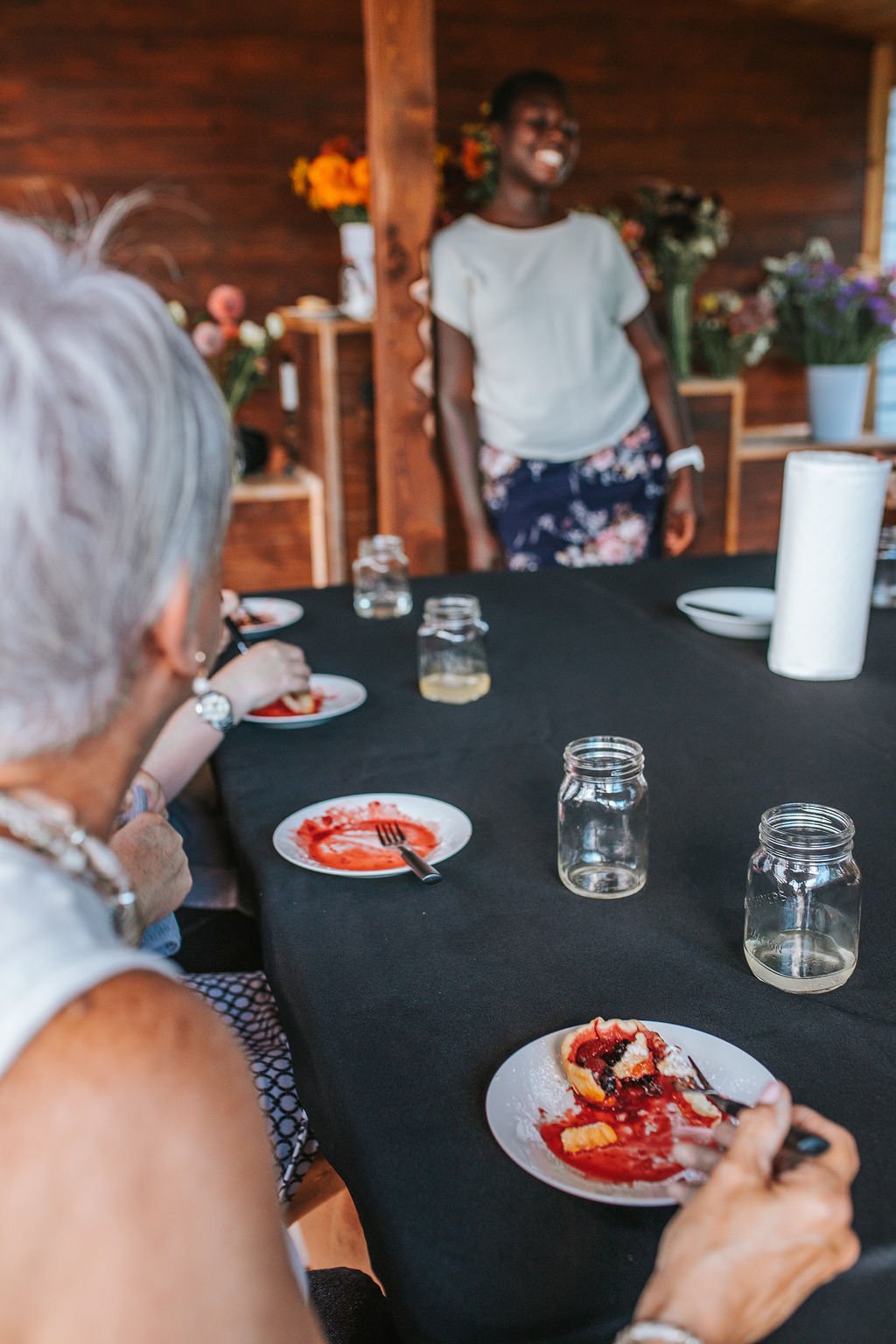5 Farming Lessons from the 2023 Season
As we conclude another year stewarding re.Planted Farm, and 2023 draws to an end, I’m compelled to reflect on some of the successes and failures from our 3rd season.
Despite the extremely prolonged heat, smoke from forest fires, excessive pest pressure, and some crop failures, 2023 somehow ended up being our most successful season yet.
Each season I’m unsure of what to anticipate. As the weather becomes more and more erratic, and the economy shaky, I struggle to plan for the upcoming year. I find it easier to instead look back, and extract lessons from failures, and encouragement from successes, to fuel my anticipation for the upcoming season.
Here are 5 of those lessons.
Workshop held at re.Planted Farm
1) Community Continues to be Everything
It’s challenging to express in words, the gratitude that I feel for the community I’m a part of; both online, but especially our local community.
Their faith in me has helped me get through some of the most challenging days at re.Planted.
Our community shows up to our weekly on-farm markets through the heat, despite the smoke from forest fires, and in the rain, and that active support is deeply encouraging.
I believe that I’ve been called to serve this community, and re.Planted is the medium by which I can render those services.
re.Planted is community-led. It exists solely to serve. Without this community, I couldn't do what I do. And it’s truly a privilege to be able to bring beauty to and provide food for my neighbours and friends.
My husband and I in Niagara on the Lake
2) Timeoff is Necessary
This season, I trialled a planned pause right in the middle of the growing season; August.
August is when burnout tends to settle in. August is also usually the hottest time of the season (although in 2023 August ended up being the coolest part of the season) so people tend to travel, and in past Augusts, we’ve consistently noticed a dip in market sales and attendance.
So armed with this data, I decided to pause weekly markets all through August and planned a week-long vacation to Niagara-on-the-Lake with my husband.
Although we still had both our flower and veggie CSA running through August, grocery orders to fill and weddings to flower, it was still nice to end our work week early and have the full weekends off.
More importantly, it helped me regain strength to finish the remainder of the season strong.
End-of-season tasks on the farm are often as rigorous as Spring tasks. In future seasons, I’ll build my seasonal plan around taking some time off in August or September.
Head of Lettuce held by Anne, our volunteer
3) Competition is Unnecessary
Or more a competitive spirit.
Farming is tough, and this industry is unique. Over the past 3 seasons, I’ve learned that we farmers are much stronger when we work together.
We struggle with tough weather, battle the same pests, lose crops, and labour in heat and rain. There’s no room for an acrimonious spirit within this community. You’ll only hurt yourself.
Each year, I order bulbs and tubers along with a neighbouring flower farm, and this partnership enables us to save more on the same bulbs and tubers, than otherwise, if we had ordered separately.
When I ran out of bouquet wrap nearing midnight on the night before Mother’s Day, I called on the local florist (who is also an alpaca farmer) and they gave me an entire roll of kraft paper to help me complete my orders.
And in 2024, I plan on partnering with another local farmer to expand our veggie production. This partnership is not only beneficial for the community, but it enables us to lean on one another for the moral support we farmers often need during the growing season.
It’s an honour to be a part of an industry that fosters a cooperative spirit.
Farm to Fork to Vase Workshop in July 2022
4) Workshops Work
Back in 2022, we hosted our first on-farm workshop in hopes of cultivating closer connections with the community. Workshops also offer me the opportunity to share an in-depth look at our gardens and growing practices.
In 2023 we started the year with our Grow Your Groceries Masterclass, where I shared our minimalist growing methods, and ended the season with a Pumpkin Centerpiece workshop, just in time for Thanksgiving.
I’ve learned that time in our gardens offer momentary respite from the week’s usual activities while allowing us to build deeper relationships with individual members of the community. I love calling people by name at our markets, and workshop attendees always have their names etched in my memory. It’s a small gesture, calling someone by their name, but an important one if one hopes to engage more meaningfully with others.
In 2024, I hope to offer many more workshops, like dried wreath workshops and flower crown workshops, to share my passion and impart knowledge.
5) Plant More Just for Me
Every year, along with the flowers and veggies we grow to sell, we also grow veggies for ourselves. Each season we strive to grow enough carrots, beans, tomatoes, onions and garlic to last us through the growing season and winter.
However, in 2023, I created a new garden just for the ‘fun’ stuff. I grew watermelons, peppers, ginger and a few other crops that aren’t particularly productive or make us money, but are just fun to grow. A lot of what I grew in that garden did poorly due to the sudden, but temporary, disappearance of pollinators once smoke from wildfires rolled in. But it didn’t matter, because I had fun.
Next season, I plan on growing even more not-particularly-productive-or-great-for-our-climate-but-fun-to-try varieties, simply for the joy of it!
That concludes my list. How did your farm or garden do in 2023? What lessons did you learn? Comment below.
Happy New Year my friend,
Akos






